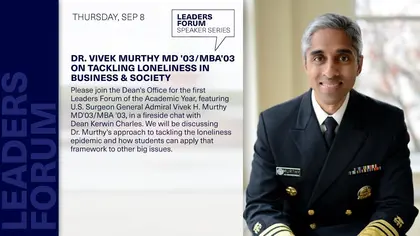U.S. Surgeon General Vivek H. Murthy ’03 Discusses the Loneliness Epidemic
Vital relationships are the foundation of success and happiness in communities, and in the workplace, Murthy told Yale SOM students during the semester’s first Leaders Forum lecture on September 8.
By Karen Guzman
Pointing to an epidemic of loneliness in the United States that’s fueling the nation’s civil rancor, U.S. Surgeon General Vivek H. Murthy encouraged students at the Yale School of Management to infuse their professional and personal lives with a healing dose of “humanity.”
“We expand circles of concern and advocacy by building relationships and getting to know people,” said Murthy, a 2003 graduate of the joint MD/MBA program at Yale SOM and the Yale School of Medicine, during a September 8 talk. “That’s how we address deep inequities, pandemics, and poverty… We are talking fundamentally about the foundation of human society. It’s built on relationships, and that founding is eroding.”
In a talk titled “Tackling Loneliness in Business & Society,” Murthy discussed his approach to the loneliness epidemic. Dean Kerwin K. Charles moderated the talk, which included a question-and-answer session.
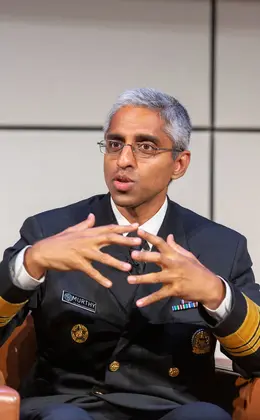


Howard Forman, a physician, management professor, and public health expert who serves as faculty director of Yale SOM’s MBA for Executives healthcare area of focus, introduced Murthy, whom he has known since Murthy’s student days at Yale. “His passion for improving the health of individuals and communities has never wavered,” Forman said of Murthy.
Murthy is in his second stint as surgeon general, having previously served during the Obama administration. He has focused on addressing issues including the proliferation of misinformation, the youth mental health crisis, burnout in the healthcare community, and social isolation and loneliness. He also serves as an advisor to President Joe Biden’s COVID-19 pandemic response.
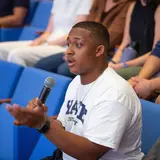
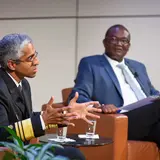
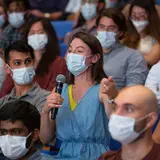
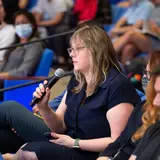
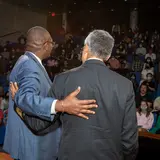
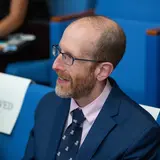
Murthy spoke as part of the Leaders Forum, a lecture series that brings leaders from all sectors to Yale SOM to meet with students.
Murthy pointed to a 2018-2020 survey that revealed 60% of Americans struggle with loneliness; that figure climbs to 75% among younger people. Loneliness poses real threats to both mental and physical health, Murthy said, among them higher risks of depression, anxiety, cardiovascular illness, dementia, and sleep disturbances.
“It is both common and consequential, and that is one of the reasons why I wanted to raise the alarm that this is a public health issue,” Murthy said.
Online connections are not the answer, he noted. In fact, the growth of remote gaming, to the detriment of in-person social activities, and remote work are compounding the problem, he said. Research has shown that poor connections among colleagues can negatively impact productivity, creativity, and employee retention.
“Creating stronger connections in the workplace matters,” Murthy said. “Connections which are the most meaningful are those when we feel we are seen and understood by another person, where we feel we can truly be ourselves.”
His office is piloting efforts that provide interpersonal context—initiatives such as short events that encourage sharing personal photos with co-workers and brief “interviews” that let team members share who they are. “We can design workplaces that, with just a little bit of time and a little bit of structure, can provide opportunities for us to get to know each other,” Murthy said.
Business leaders need to devise their own connection strategies. But this type of systemic change is only successful when leaders communicate clearly about the stakes involved, bring the right stakeholders to the table, and provide clear pathways for action, Murthy said.
Broader public support helps, too, and getting it shouldn’t be a problem at a time when public vitriol and divisiveness are at an all-time high, he added.
“People all across America know that something is not right…It’s a symptom of a deeper pain and unrest that people are feeling inside. Our charge is to ask ourselves how we can address that deeper pain and make people feel more connected and understood.”
Murthy encouraged students to take up this charge when they embark on their careers. “Whatever you may do after SOM, I would ask you to keep this in mind,” he said. “Our connections with each other truly are the foundation on which we build successful families, communities, and enterprises.”

